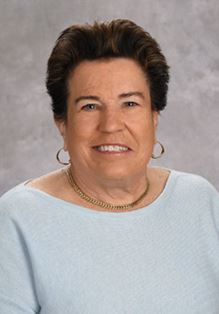2191-2200 of 2829 Results Found
Condition
Cystic Fibrosis and the Digestive System How does CF affect the digestive system? Children with cystic fibrosis (CF) have a protein in their cells that doesn't work right. The protein is called CFTR (the cystic fibrosis transmembrane regulator). CFTR controls the flow of water
Condition
Uniparental Disomy: Prader-Willi Syndrome and Angelman Syndrome What is uniparental disomy? Chromosome pairs affect how our body works. Normally, a baby gets 1 copy of each chromosome pair from each parent. This means 1 copy from the genetic mother, and the other copy from the
CME Session
PCH - Grand Rounds "Parental Authority"
Presentation title: Parental Authority Panel of Presenters: Megan Land MD - Moderator, Critical Care physician and Ethics Committee Member Michelle Munkwitz, MD, Critical Care James Ahlers, Assistant General Counsel at Phoenix Children's Hospital and Ethics Committee member

CME Session
SURG - Contemporary Management of Primary Spontaneous Pneumothorax in Children - James Prieto, MD
At the end of this presentation, participants should be able to: Define primary spontaneous pneumothorax in pediatric patients and distinguish it from secondary causes Review epidemiology and risk factors associated with spontaneous pneumothorax Summarize current evidence based
Article
A message from President and CEO Bob Meyer
Dear Community Members, Our entire health care community is grieving the tragic loss of lives in Uvalde, Texas, and we stand alongside the families at Robb Elementary School who must be experiencing unimaginable pain. When children are at the center of such loss, grief is
Condition
Allergens: Pollen What is pollen? Pollen is the tiny egg-shaped male cells of plants, including trees, grasses, and weeds. Pollen is microscopic in size. It is the most common cause of hay fever (seasonal allergic rhinitis). Which plants produce pollen that cause allergic
Condition
Trinucleotide Repeats: Fragile X Syndrome What are trinucleotide repeats? DNA is the chemical that makes up your genes. It contains a "code" of 3-letter words known as codons or trinucleotides. Many genes normally contain trinucleotide sequences that repeat. These are called
Conditions We Treat
Children can be born with a motility disorder or develop one later. Some motility disorders are caused by a problem with the child’s anatomy or by another medical condition. Others are caused by poor habits learned during potty training. The Neurogastroenterology and Motility
Service
The kidney transplant program at Phoenix Children's began in 2002, and since then, we have performed more pediatric kidney transplants than any hospital in Arizona. Our experienced team provides the high-quality care and support children need with a personalized, family-centered
